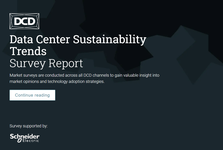It's hard to believe, this far into the climate emergency, but a lot of companies are still not reporting their environmental impact properly. Some aren't reporting at all, and others are misreporting.
42 percent of the world's top 4,000 companies do not provide basic data on their own Scope 1 and 2 carbon emissions. And for those that do, there are currently no fully worked-out and accepted ways to evaluate and compare the reports companies make, they are getting away with it. And, since emissions are killing the planet, it is only somewhat of an exaggeration to say that by greenwashing their emissions away, they are getting away with murder.
It is worth spending a bit of time on the harm that greenwash does. Oil companies have consistently and deliberately overstated their low-carbon energy transition efforts. Studies in February and September last year spelled that out.
Obstructive lies
A study from Tokyo University in February examined 12 years of words and deeds from the oil sector up to 2020, and found that oil companies made increasing pledges about "transition" in their annual reports, while spending "insignificant" amounts on transition, and continuing a business model dependent on fossil fuels. They explicitly planned to drill and burn an amount of oil and gas which, from well-publicized scientifically-determined figures, was more than enough to take us past the 1.5C warming threshold
An InfluenceMap analysis in September found that 60 percent of press releases from the Big Five (Shell, BP, Chevron, ExxonMobil, and TotalEnergies) mentioned "green", but only 12 percent of their investments went to low-carbon technologies (and many times, these low-carbon investments included gas, which is not a low-carbon source, but a less-carbon-than-oil source of energy). That report accused the oil giants of a strategy to "undermine and block climate policy.”
In short, they have been lying.
These lies fooled some conscientious investors, (like the Church of England) into holding onto oil investments for years, while the oil companies pretended to have a dialog with them.
End the greenwash
That kind of tactic works when companies can get away with greenwash. Luckily there is a move to clamp down on it.
This week, the International Sustainability Standards Board (ISSB) published a set of standards for climate disclosures, and from 2024, we can ask that they be used in annual financial and ESG reports.
They are based on existing standards from the G20's Task Force on Climate-related Financial Disclosures (TCFD) and emerged from the 2021 COP26 climate summit in Glasgow. They could become mandatory if they are picked up by national governments. They are also likely to be referenced into the EU's Corporate Social Responsibility Directive (CSRD), and are being looked at by several other countries.
Financial regulators like the UK's Financial Conduct Authority (FCA) like the new standards, because they should ease the reporting burden - but seeing to it that sustainability reporting is consistent between different countries. Hopefully, they will also make it harder to get away with false or misleading reports.
The UK Government has also welcomed the standards, with treasury minister Joanna Penn promising that companies will in future have to report against "UK endorsed versions of the IFRS sustainability disclosure standards".
That might turn out to rebound against the government of course, as a withering report from its own advisors, the Climate Change Committee, found that the UK is failing on all fronts in the climate emergency, while continuing to make ever more extravagant promises. In short; like the oil industry, it is full of greenwash.
How does this affect the tech industry? Well, the US and China are the biggest tech players, and neither is mentioned in the ISSB release.
The US Securities and Exchange Commission (SEC) has been due to publish reporting rules for some time, having said that climate risk will be included in future required disclosures. We are still waiting for detail on that one.
I'd like to think that tech companies just need some strong rules to keep them honest (though some, like Amazon, need more policing), and better reporting might actually produce more effective net-zero strategies with better long-term investments.
The FCA thinks that these rules could provide just that: "ESG reporting can encourage technology companies to prioritize issues such as accountability, transparency, and ethical decision-making."







